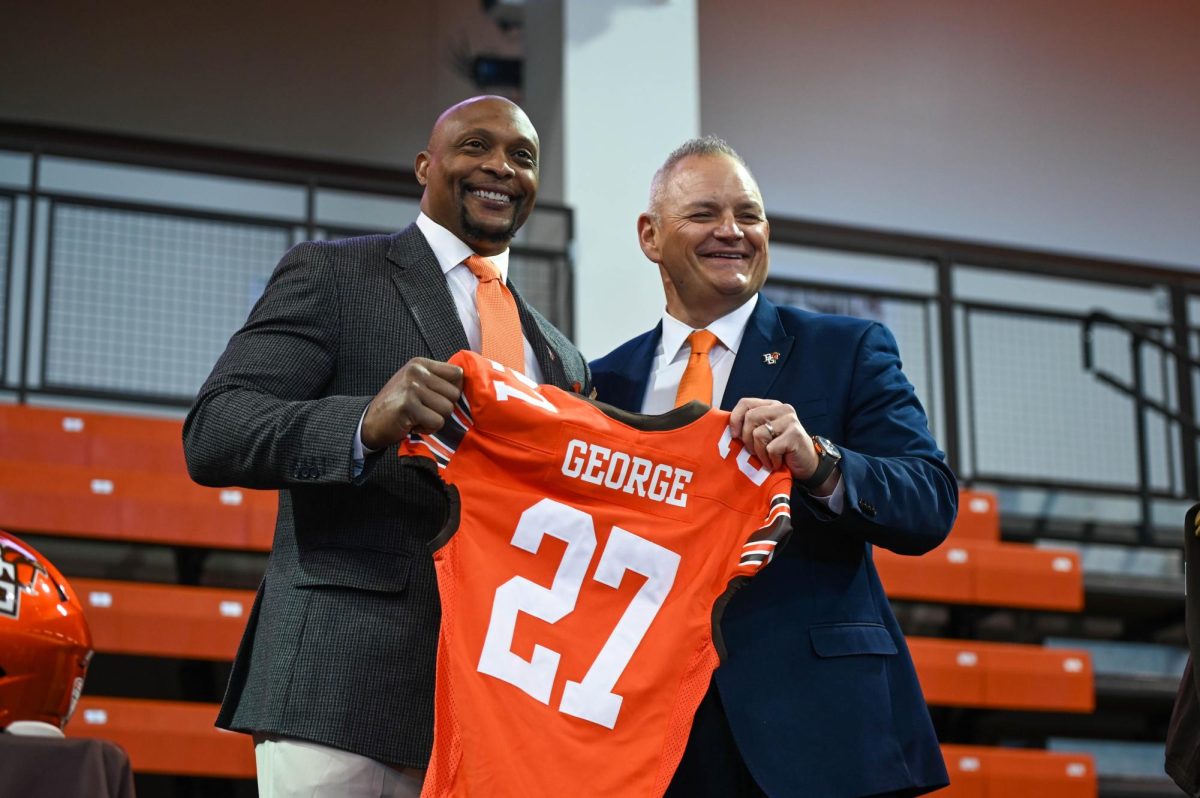In recent years, leadership in non-political positions has become increasingly more common and immanently more important.
The 20th century marked the beginning of several new industries, which required radically new leaders. These people required imaginative thought on a scale which had never been seen before.
Needless to say, mechanical and scientific inventions, like planes, have connected the world; However, modern technology, specifically social media, has further connected the world to a level, which was unimaginable even 10 years ago.
The past century has proven there is a cultural need for a leader who can act outside politics to drive towards a new tomorrow.
Fortunately for the U.S., two clear exceptional examples of forward-thinking leaders were able to pursue business endeavors while managing to shape U.S. domestic and foreign relations.
Born in 1901, Walt Disney escaped failures as a young man to build an art studio, which has become one of the largest and most successful companies in the world.
Many think of the Disney Company as a theme park or riding naked on a wrecking ball.
These narrow assumptions, however, are simply false. Take for instance this short list of the Disney Company’s assets: ABC, ESPN, Marvel, Pixar and Lucas Arts.
Yes, this means that Mickey Mouse owns the Avengers and Star Wars.
The question is, of course, how did this happen? Walt was a man— a flesh and blood human being like any of us— the difference being Walt’s exceptional gift of creativity.
Walt and his art studio produced the first full-length feature film, “Snow White and the Seven Dwarfs,” amid a society, which believed there were serious health concerns including eye cancer caused by watching a screen for so long.
Walt’s studio obviously went on to be wildly successful and Walt became so popular around the world that he was asked to serve as the U.S. ambassador to Latin America.
This position put Walt in a place to influence foreign and domestic policy through the propagation of his own art studio. Walt and his studio played a pivotal role in World War II as Donald Duck and others illustrated to an American audience the importance in aiding the military and fearing the Nazis.
The company’s economic interest would later play a significant role in establishing diplomatic ties between the United States and the Chinese government as they saw the economic benefits of working with American industry.
Later, Steve Jobs would in a very similar fashion, revolutionize American thought. From a pure creativity point of view, there has possibly never been anyone more adept at solving problems we don’t have and marketing our need for what we can live without.
My enV3 and I hold out as the last vestiges of a dying race of cell phones. Jobs’ work with Apple is nothing short of brilliant.
If you look around, the likelihood of seeing an iPhone, an iPod and an iPad are all pretty good. The invention of these products on their own required a creative mind which far exceeds that of normal members of society.
However, the brilliance of Jobs was in the marketing. His ability to market these products recognizes a level of creativity, which I am not even prepared to conceptualize.
Jobs’ ability to advance the world through technology put him in a position in which he was able to lead social and economic change through his company’s actions. His creative mind became a tool for policy and with this, he and Disney serve as models of the usefulness of creativity in leadership.
Respond to Greg at













